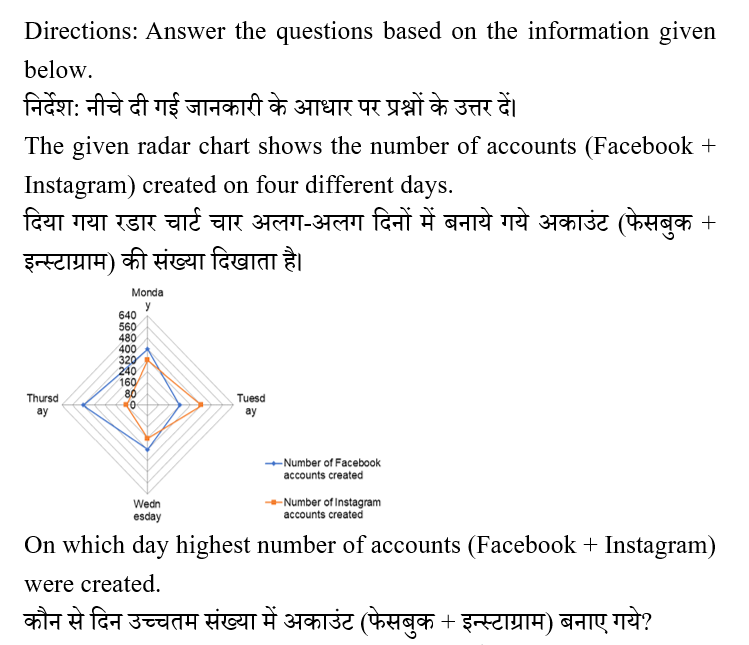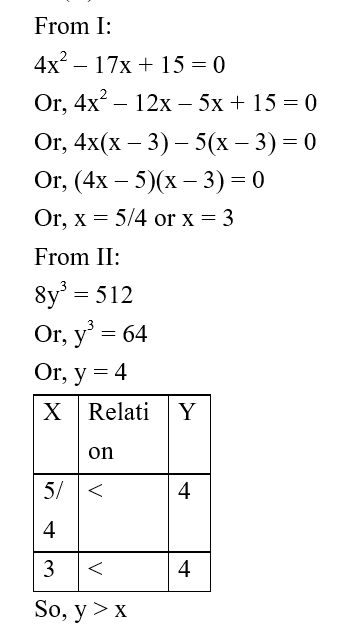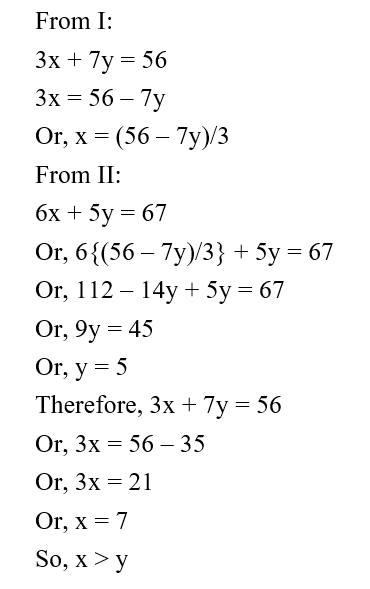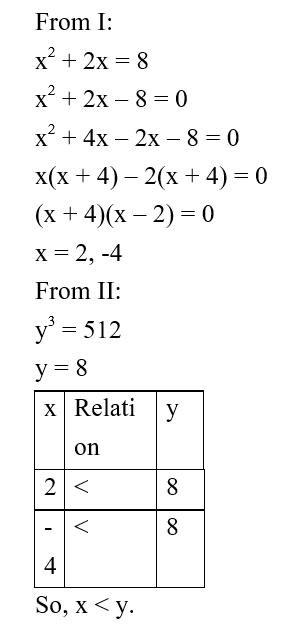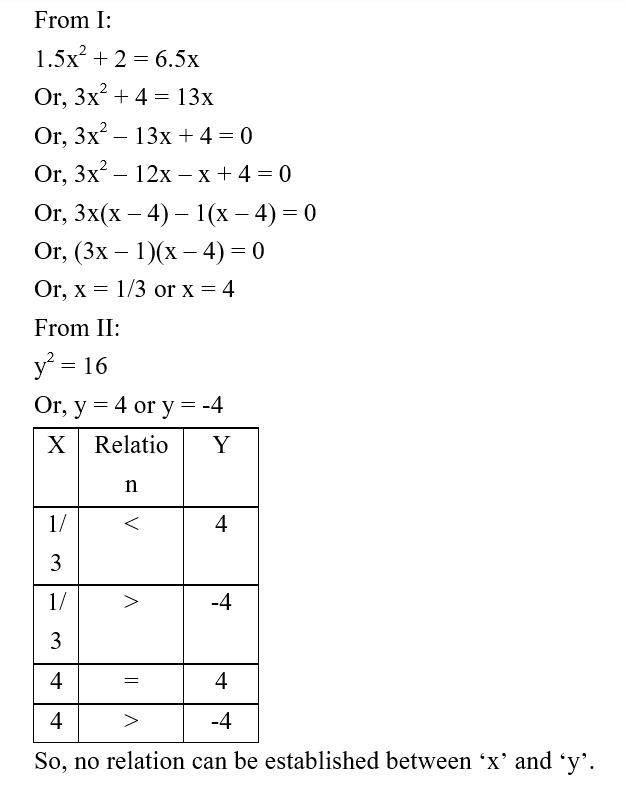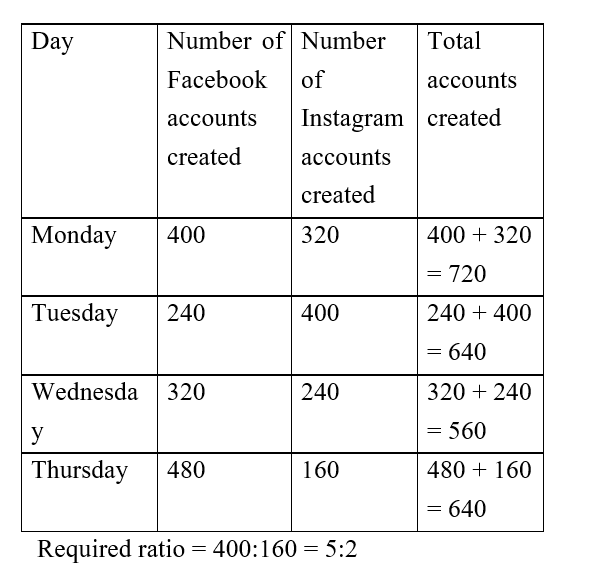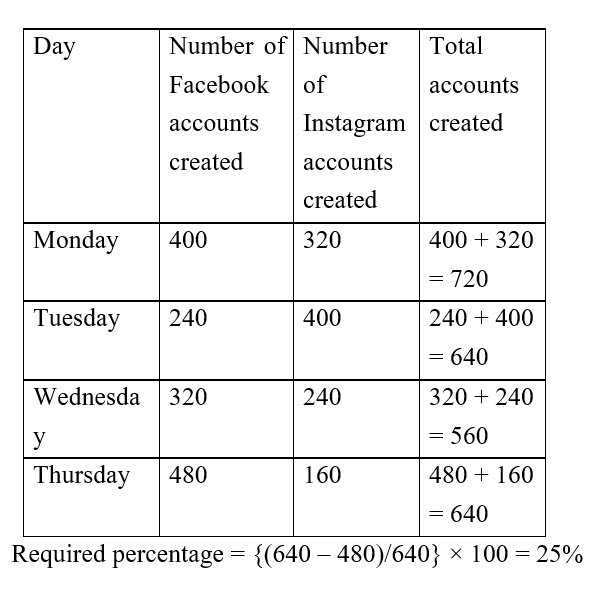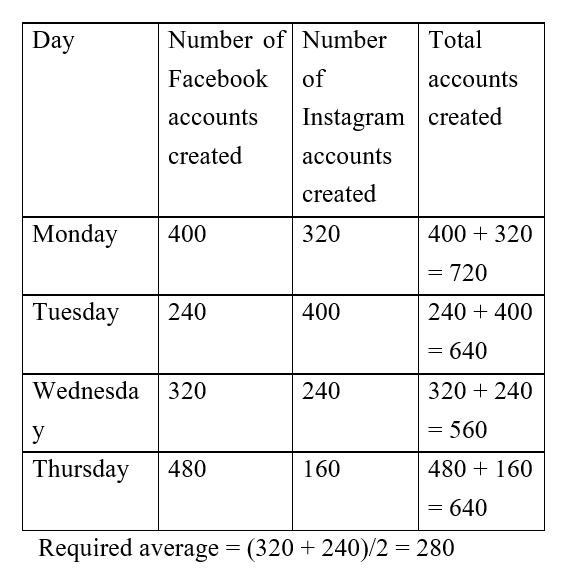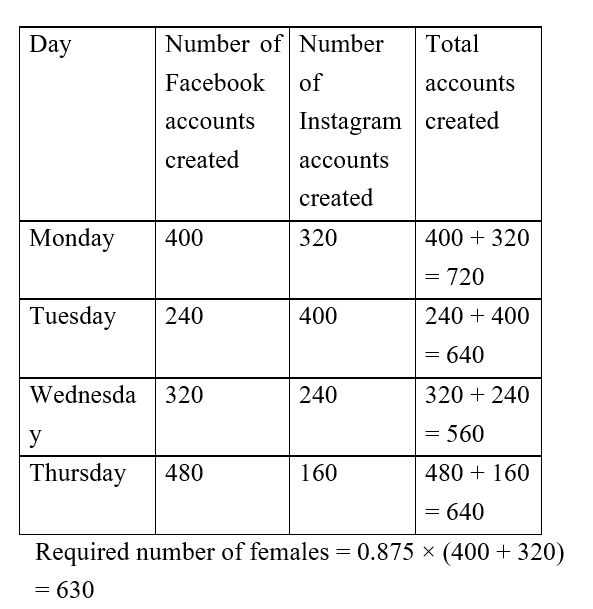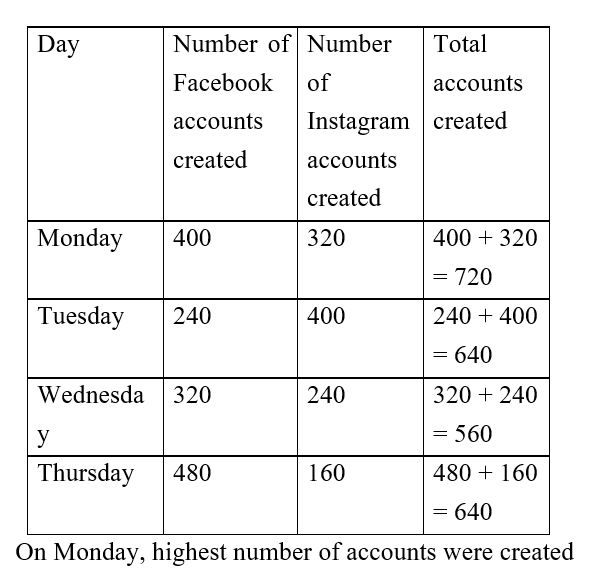Question 1:
Direction: In the question, two equations I and II are given. You have to solve both the equations to establish the correct relation between x and y and choose the correct option.
निर्देश: प्रश्न में दो समीकरण I और II दिए गए हैं। आपको x और y के बीच सही संबंध स्थापित करने के लिए दोनों समीकरणों को हल करना है और सही विकल्प का चयन करना है।

Question 2:
Direction: In the question, two equations I and II are given. You have to solve both the equations to establish the correct relation between x and y and choose the correct option.
निर्देश: प्रश्न में दो समीकरण I और II दिए गए हैं। आपको x और y के बीच सही संबंध स्थापित करने के लिए दोनों समीकरणों को हल करना है और सही विकल्प का चयन करना है।
I. 3x + 7y = 56 II. 6x + 5y = 67
Question 3:
Direction: In the question, two equations I and II are given. You have to solve both the equations to establish the correct relation between x and y and choose the correct option.
निर्देश: प्रश्न में दो समीकरण I और II दिए गए हैं। आपको x और y के बीच सही संबंध स्थापित करने के लिए दोनों समीकरणों को हल करना है और सही विकल्प का चयन करना है।

Question 4:
Direction: In the question, two equations I and II are given. You have to solve both the equations to establish the correct relation between x and y and choose the correct option.
निर्देश: प्रश्न में दो समीकरण I और II दिए गए हैं। आपको x और y के बीच सही संबंध स्थापित करने के लिए दोनों समीकरणों को हल करना है और सही विकल्प का चयन करना है।

Question 5:
Direction: In the question, two equations I and II are given. You have to solve both the equations to establish the correct relation between x and y and choose the correct option.
निर्देश: प्रश्न में दो समीकरण I और II दिए गए हैं। आपको x और y के बीच सही संबंध स्थापित करने के लिए दोनों समीकरणों को हल करना है और सही विकल्प का चयन करना है।
I. 7x + 9y = 24 II. 12x+3y+75=7x+100 – 5y
Question 6: 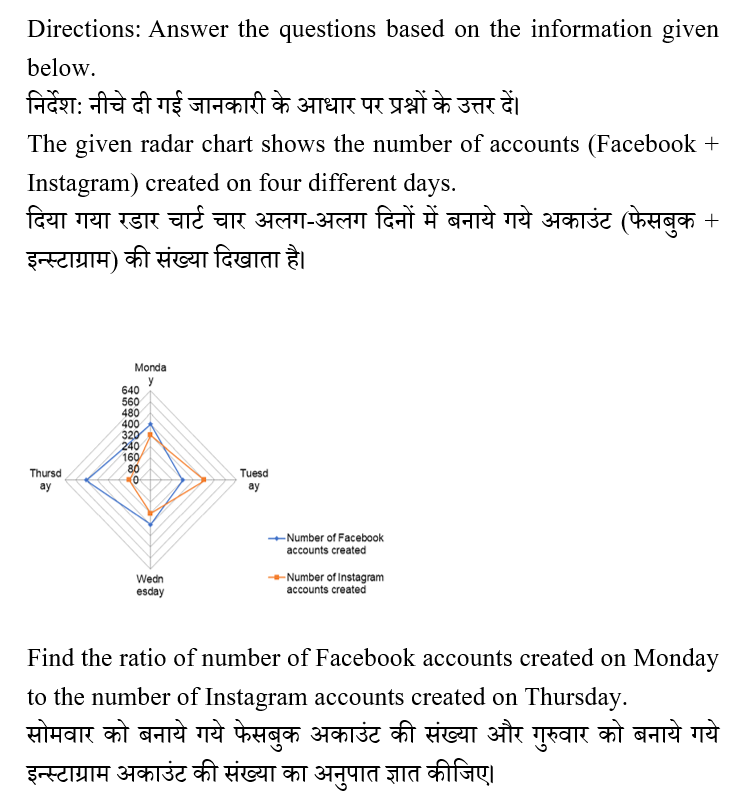
Question 7: 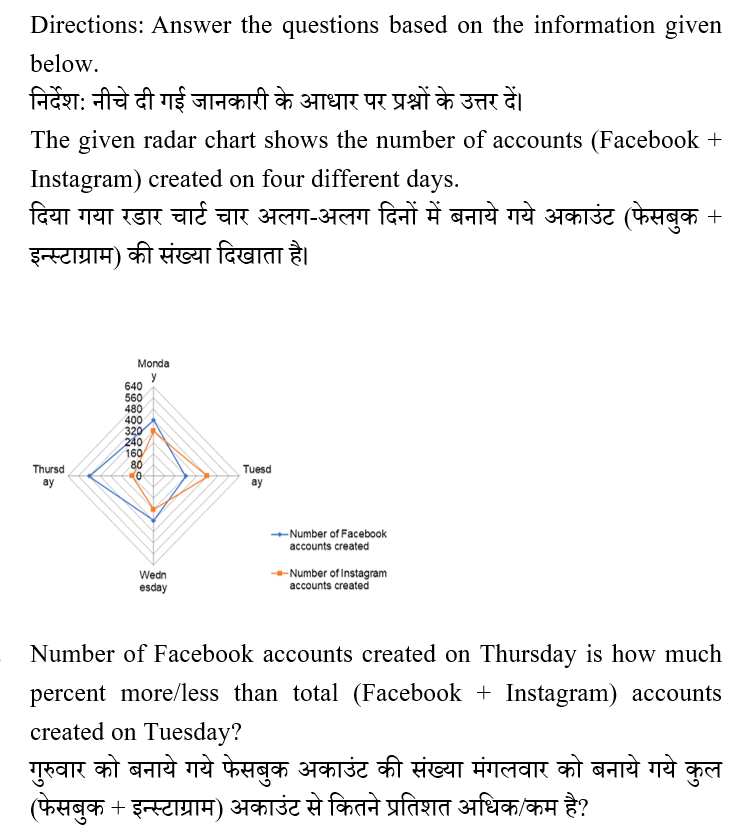
Question 8: 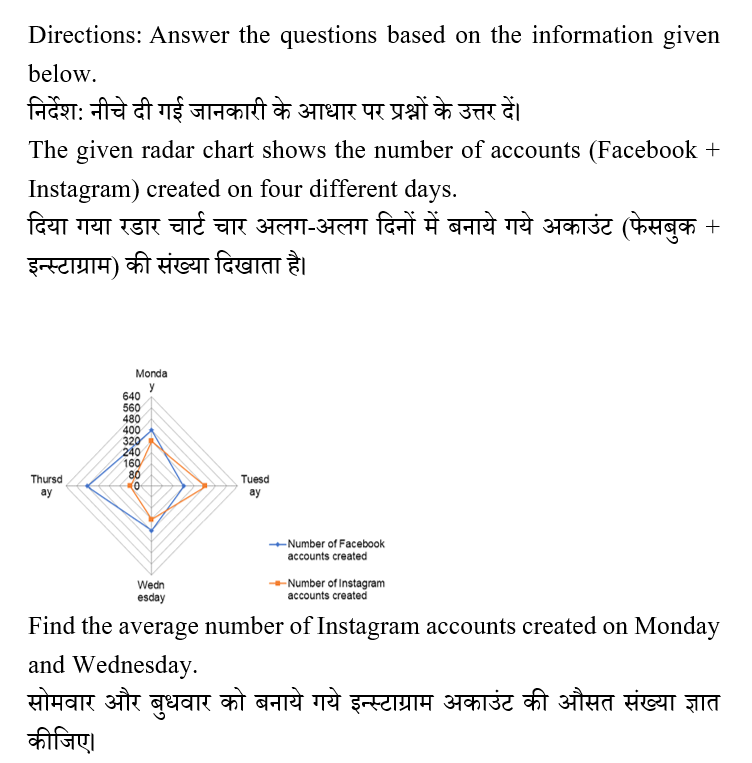
Question 9: 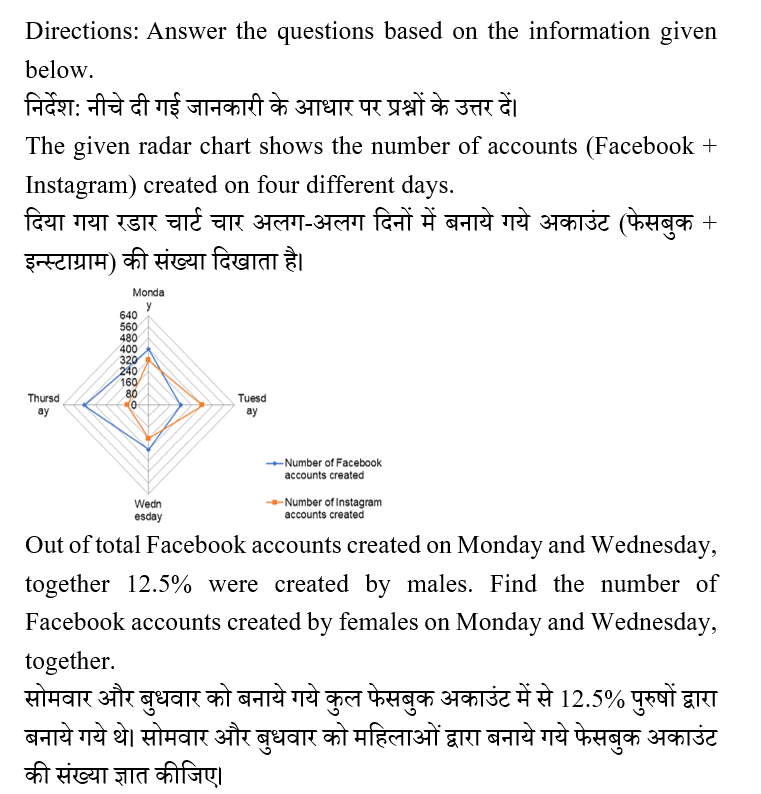
Question 10: 